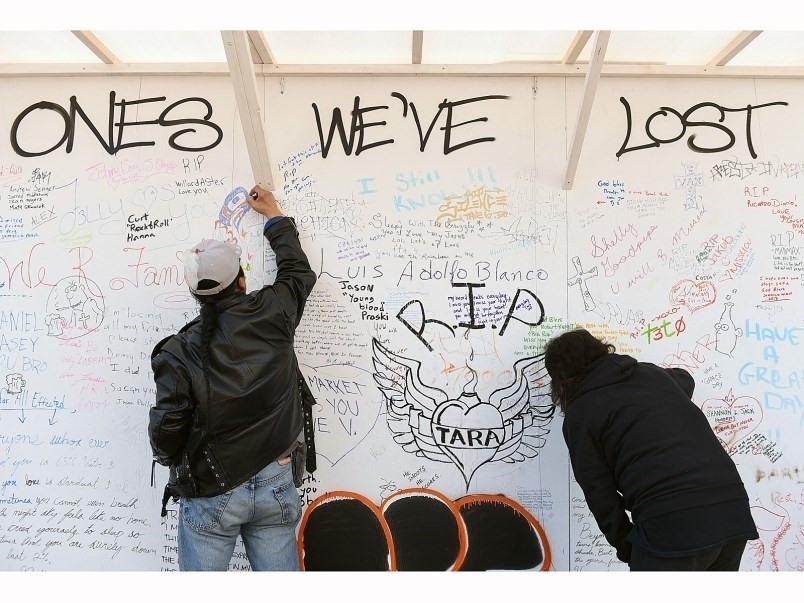We’ve all experienced grief at one point or another in our lives. The death of a loved one, the loss of a job or the end of a significant relationship can lead to feelings of sadness, anger and depression that are commonly considered part of the grieving process. In addition, events like the COVID-19 pandemic and the opioid overdose crisis have triggered more general feelings of loss and grief for many of us, even if we haven’t been directly impacted.
Grief is a natural part of being human and there is no right or wrong way to grieve a loss. However, there are some people whose grief significantly impacts their ability to participate in day-to-day activities, months or even years after the loss.
Labelling grief as a disorder a controversial move
Earlier this year, the American Psychiatric Association (APA) added “prolonged grief disorder” to the Diagnostics and Statistical Manual of Mental Disorders 5 (DSM-5), the handbook used by health care professionals to diagnose mental disorders. The addition was controversial, with some clinicians feeling that you shouldn’t turn a normal human emotion into a medical condition and others advocating for its inclusion so that people who are struggling with their grief can get the help they need.
“Grief is natural part of human experience and should be thought of in a way that connects us with our humanity rather than pathologizing it,” says Dr. Lauren Daley, a palliative care physician at Providence Health Care. “I worry that creating a diagnosis could isolate people in their experience of grief by placing labels on their specific brand of grief. Having said that, as long as the diagnosis is being used to identify and support people, it could serve an important role.”

Dr. Kevin Smith, geriatric psychiatrist at Providence Health Care, shares Daley’s concerns about the addition of prolonged grieving to the DSM-5. At the same time, he recognizes that prolonged grief can affect a small subset of people and those people deserve support.
“If someone is dramatically changing their usual life processes and shutting themselves off from family, friends and other elements of their life, if they’re experiencing ruminations and flashbacks, these are all signs that the grief isn’t normal. And as a health-care provider, you can start to see signs of this as early as six months after the loss,” says Smith.
Supporting people to recover from grief
The APA added prolonged grief disorder to the DSM-5 after decades of research showed that grief, especially prolonged grief, was distinct from depression. Traditional treatments for depression, including medications, weren’t helping individuals with intense grief. New treatments were developed, based on techniques typically used to help people experiencing post-traumatic stress disorder.
“I think it is a good idea that prolonged grief has been added to the DSM-5. Grief is a difficult experience. If by adding it to the DSM-5, we can help people who are struggling to move on from a significant trauma, we should. It opens the door to offering them therapy, counselling and other modalities of support,” says Dr. Gil Kimel, head of the division of palliative care at Providence Health Care.

Normalizing grief
“You can perhaps compare grief to any disease, especially in terms of severity. If someone has a debilitating disease, it may impair their ability to function in society. But if someone has a mild disease, and they can do everything they need to and want to in life, then their disease may not be as much of an issue,” says Kimel.
“It can be the same with grief. If someone has a constant but mild background feeling of grief but they are functioning member of society and have a good quality of life, then they aren’t being limited by their grief. It may even help them be more understanding in life and be more effective and sensitive in relationships,” he continues.
Daley agrees. “Death can feel like a heavy topic, associated with things like sadness, despair and loneliness. But it can be very life-affirming. The experience of grief can change how you interact with others,” she notes.
To help demystify dying, Daley hosts a podcast called “Talk Dying to Me”. It tells stories about different experiences related to grief and loss. In her opinion, having a healthy relationship with our mortality can lead to living a more fulfilled life.
Smith encourages his patients to stay connected throughout the grieving process. “Keep reaching out. In early stages, grief is grief. Eat every day, get some sleep, talk to someone every day,” he notes. “If you don’t cry, it doesn’t mean you aren’t grieving. There are no milestones or ‘right’ way to grieve”.
“I like to tell my patients that if elephants can grieve, so can you,” says Smith.





